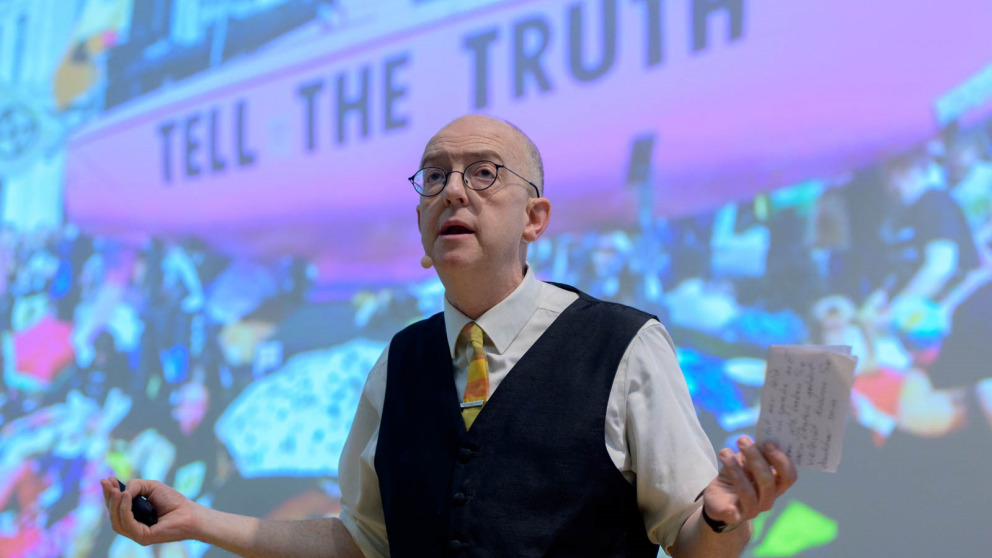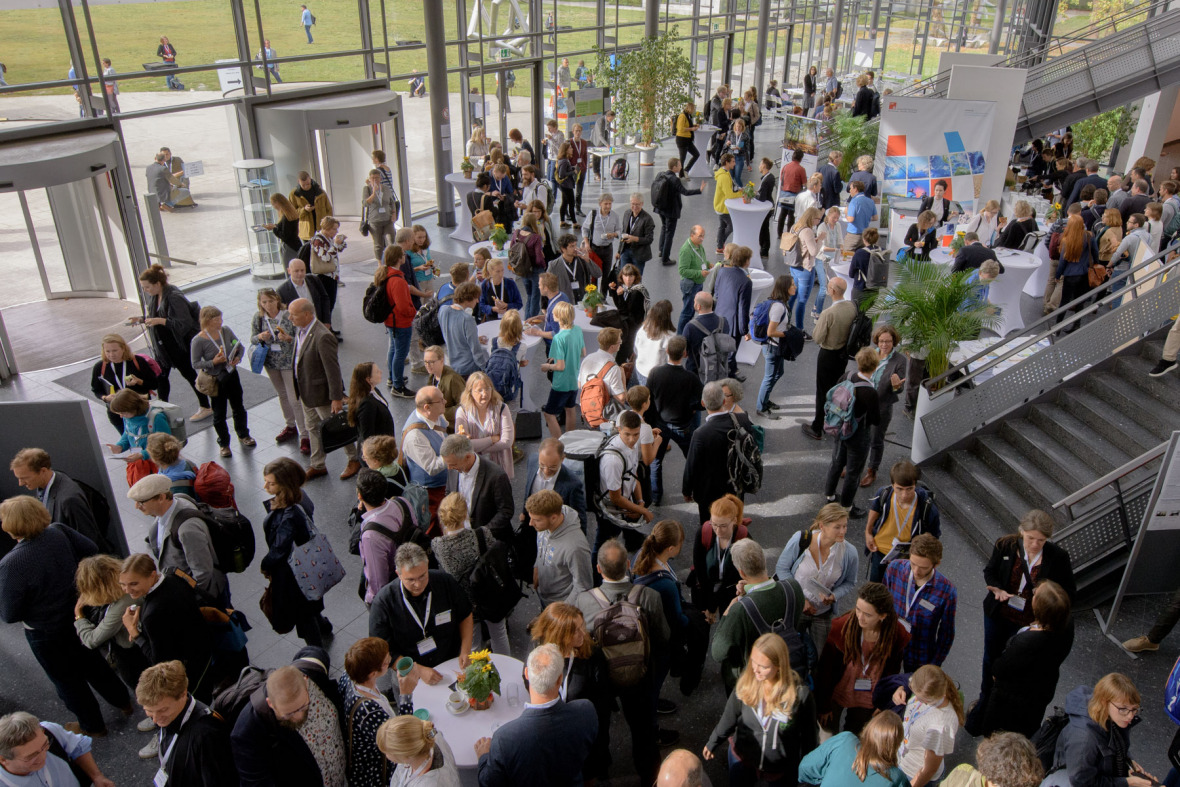Outrage vs. Empathy – a Culture Clash in Climate Communication?
11.10.2019

“We need to start by telling people they are awesome.” This was one of the central messages from climate communications expert George Marshall in his opening keynote at K3: Kongress zu Klimawandel, Kommunikation und Gesellschaft, the German-language congress on climate communication that took place this September in Karlsruhe. As in: we have to accept people for who they are, listen to them, and frame climate action in terms that align with their values.
In Marshall’s view, the center right of the political spectrum is one of the most important and yet neglected political groups that we need to be talking to when it comes to building support for climate action. As an example, Marshall’s consultancy Climate Outreach worked on a project to create a positive narrative around climate change in the province of Alberta, Canada, a region with a large oil and gas industry. The narrative that they found to be most successful was one that recognized oil and gas as natural resources on which the region had built its prosperity, but framed sun, wind and water as further natural resources that would help secure a prosperous future for the region and shelter it from the instability of international oil markets. Framing natural resource exploitation as a pro-climate message is counterintuitive to those of us in the “green” bubble, but it can work.
Can understanding bridge the social divide?
This approach was received with approval and enthusiasm by the congress delegates, a mix of scientists, policymakers, and practitioners from across Germany, Austria, and Switzerland. Starting our communication on climate from a place of empathy and understanding – rather than a need to convince people that we’re right (and they’re wrong) – is an approach that resonates with me. I see an alarming lack of solidarity in our society right now. We seem to be stuck in a rut of left versus right and us versus them, with consequences that naturally go far beyond lackluster climate policies. I believe that making an effort to understand people whose opinions and ideologies are wildly different from our own can at least help to heal some of our social divides, and at the same time I recognize that true empathy is in itself hard work.
A least at first glance, this “empathy-first” dogma stands in stark contrast to the communication style of today’s most visible climate communicator, 16-year-old climate activist Greta Thunberg. In a recent speech to the UN, she told world leaders:
"You have stolen my dreams and my childhood with your empty words. And yet I'm one of the lucky ones. People are suffering. People are dying. Entire ecosystems are collapsing. We are in the beginning of a mass extinction, and all you can talk about is money and fairy tales of eternal economic growth. How dare you!”
Greta’s speeches are filled with righteous anger and blame, and her message has been effective. In the year since she started protesting in front of the Swedish parliament, Fridays for Future has become a global youth political movement. And it’s not just the youth she’s reaching: I’d wager a bet that nearly every delegate at the K3 Congress watched the video of her speech, which was trending on social media during the kick-off event. Greta’s persona and message captivate me personally as well, in part because she reminds me of my 16-year-old self: idealistic, impassioned, and sure, a little bit naïve. And my impression is that behind her anger lies the fundamentally optimistic belief that we can still turn things around – in contrast to world leaders (and perhaps most world adults), who certainly act like they have given up, even if they are not yet willing to admit it.
Making the leap from outrage to action requires broad support
So which is it? Is the climate communication we should be promoting about outrage or understanding? After struggling with this question, my tentative conclusion is that there’s not necessarily a contradiction between the two. Certainly, some people have told me that they find Greta’s message to be too divisive, and too negative. But there is no denying that she has started a movement, and maybe it’s useful to see her message as a wake-up call, a shock to the system – and one that carries an emotional punch that the IPCC could never deliver.
But to make the jump from a political movement to a world with agreed and then implemented (and let’s not forget ambitious!) measures for climate mitigation and adaptation, we need to create broad support, and that includes the support of people for whom Fridays For Future’s messages simply do not resonate. Convincing broad swaths of society – with different backgrounds, interests, and cultures – of the value of climate action is the on-the-ground work that needs to be done to secure the majorities needed for ambitious political action. And this is where I think empathy is critical: we need to be able to put aside our differences and effectively communicate why limiting climate change is truly for the common good – and frame it in a way that speaks to the values of those we are trying to reach.
Kathleen Mar served on the advisory board for the K3 Kongress.
The lectures at the K3 Congress were recorded and can be accessed online here:





